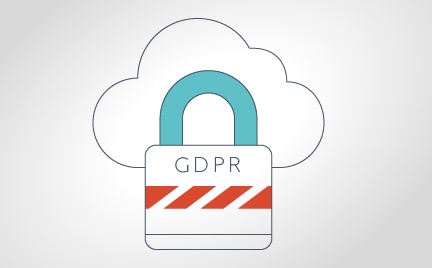GDPR will impact the events industry, are you ready?

Whatever else you may hear about GDPR and its effect upon the events industry, it will apply, it will be enforced and the penalties for non compliance are eye watering. One thing we keep stressing, to anyone who will listen, is that with a little planning and forethought it need not be the cause for panic that many seem to think.
However, the closer we get to May 2018 the harder it will be to implement comprehensive and coherent GDPR compliant marketing.
So, let's have a quick look at the impacts of GDPR on the marketing function of anyone involved in live events, exhibitions and conferences, whether you are an organiser, venue or supplier:
Key for the events industry is that GDPR does not currently distinguish between a personal or business email address, as long as the email address is used by an individual then it falls within the regulations. Double opt-in will be required for all emails that relate to an individual, personal or business and the sender of emails must be able to demonstrate that permission was given by the recipient by means of a double opt in process. The process of soft opt in will not be acceptable, that includes single opt in, pre filled check boxes and the requirement to opt out, none will be compliant.
There is a right to be forgotten – that is to have all personal details removed from databases, once this has been done there is no right to recontact that person without them first requesting to be contacted via double opt in.
The effect on B2B and B2C marketing will be significant and it will impact on the events industry across the board. But there's no need to panic, there has been a significant shift in how people buy and engage over the past few years. We have seen the person who would, in the past, have been marketed to whereas today the emphasis is rapidly moving to permission based marketing, and that is where inbound marketing can make a huge difference. Here are our top four suggestions for moving towards compliant marketing:
The most effective marketing is no longer about mailing out and calling databases, it has become increasingly ineffective as the audience has taken control of the process, seeking out solutions to the problems they face and engaging with organisations that provide possible solutions. Inbound marketing is designed to bring those individuals whose needs match your solutions through a process of helping them, providing support and building trust and rapport. Once they have this an email and lead nurturing approach is no longer a surprise, it is seen as welcome and part of an ongoing relationship. All of this hinges on the effectiveness of your website to engage and opt into further dialogue because the visitor has found it valuable.
Your website needs to be the lead engine of your organisation, by effectively using your website to share information – blogs, news, articles, video – you can engage your audience and if they find the information useful, they may even choose to exchange data in order to receive further content (yes this is where content marketing merges with inbound). Once engaged then the lead nurturing aspects of inbound keep the individual engaged and interacting with the website, moving them along the sales funnel until they become a lead. To be effective our website needs to be optimised for search, focused entirely on how you can help your prospects and designed to move them from a visitor to a customer. Your website should be optimised for customer interaction with calls to action (CTAs), wrapped in analytics to track behaviours and be nimble enough to adapt to changes in visitor needs.
Revisit your existing data. It's likely that your data will not be wholly compliant with a traceable double opt in, but there's still time to seek permission from your existing databases. There is a closing window in which this can be done, prompt, polite and engaging communication to gain double opt in will have an effect upon the size of your database. However, those that do respond are engaged and can be nurtured, those that do not respond may not be the hot prospects you may have imagined.
This leads onto the fourth and last point – let old data die. You may have the largest database in the industry but how many of those contacts are still relevant, still in post, still using the same contact data. As a matter of course you will be clearing out all hard bounces, all unsubscribers, and any general email addresses that are not personal (you're unlikely to get a response from info@). The remaining data you should put through a double opt in process but don't be afraid to prune and tighten the lists. Better to have a few thousand engaged, well profiled and active prospects than a hundred thousand names most of whom will never engage. Conversion rates will be better and there's a smaller chance of contravening the regulations.
We welcome GDPR, it will tighten up digital marketing processes, sharpen sales propositions and deliver relevant information to target audiences because everyone's focus will be much sharper. Getting to grips with this now may just steal a march on your competition.